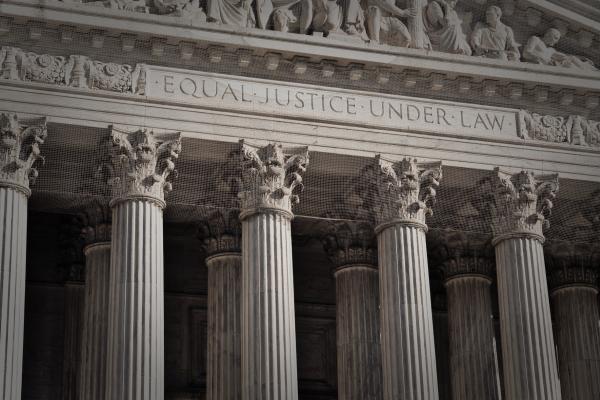PROVIDING A definition of religious freedom is fairly easy: Every human person has a right to believe, to pray, to worship in community, and to practice her faith according to her conscience. And it’s just as easy to get Americans to agree that religious freedom is an important, even crucial, element of a healthy society. But ask what it means to respect this human right and where it’s being violated, and you quickly find yourself in the weeds of rancorous debate.
On the one hand, conservative Christians have raised religious freedom alarms in the U.S. Television personalities David and Jason Benham, for instance, cite such concerns in their objections to ordinances allowing transgender people to use bathrooms that correspond with the gender with which they identify; a National Review columnist wrote that such policies “would render religious liberty permanently subordinate to the interests and demands of LGBT activists.”
Does sharing a bathroom with a transgendered person infringe upon the consciences of those who consider transgender identity a threat? And even if it does, does the state’s role in protecting the rights and dignity of all citizens sharply relativize this concern? Are the questions perhaps more complex than our binary culture wars suggest?
Or consider: For five years, critics of the mandate of contraceptive coverage by employer health plans under the Affordable Care Act have insisted that the policy violates religious freedom. Several businesses and organizations—Hobby Lobby, the Little Sisters of the Poor, and more—have sued the federal government on the point. And despite its decades-long advocacy of universal health coverage, the U.S. bishops’ conference initiated an annual “Fortnight for Freedom” observance that even some allies find inappropriately partisan.
Some who gnash their teeth over these issues seem unconcerned about other offenses to religious freedom. They said little, for example, about state government efforts to interfere with Christian ministry to migrants and refugees. Indiana Gov. Mike Pence not only withdrew his state’s help to Syrian refugees trying to escape a historic humanitarian crisis, he also tried to convince the archdiocese of Indianapolis to cease its ministry to them.
Read the Full Article

